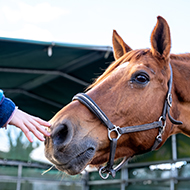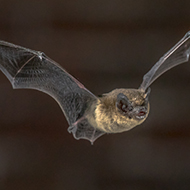Vets from Cummings Veterinary Medical Center at Tufts University and Mystic Aquarium prepare Ziggy Star, an adult Northern fur seal, for brain surgery.
Ziggy Star recovering from surgery at Tufts University
US vets have successfully performed a first-of-its-kind brain surgery on a Northern fur seal named Ziggy Star.
Ziggy lives at the Mystic Aquarium in Mystic, Connecticut, and was transferred to the Cummings Veterinary Medical Centre at Tufts University to treat her worsening neurological condition. She was taken in by the Aquarium four years ago after being found stranded on a beach and deemed unsuitable for release.
Ziggy’s condition means that she suffers from neurologic episodes, difficulty moving, reduced training response and cluster seizures. The problems stem from an accumulation of cerebral spinal fluid in the brain, a condition known as hydrocephalus.
Cummings’ lead neurosurgeon, Ane Uriarte, said: “The MRI taken recently by our team showed that the brain was disappearing due to the excess fluid, and it was significantly worse than the last study four years ago.
“After discussion with Mystic’s veterinary team, we determined the best option to prevent further deterioration of the brain and to improve Ziggy’s symptoms was to surgically place a shunt to drain the excess fluid, relieving some of the pressure on the brain.”
Hydrocephalus is fairly common in cats and dogs. But the team was unable to find any evidence of the disorder being surgically managed in seals. Without any published research, they were forced to rely on their experience of treating the condition in other animals.
The surgical procedure lasted just over an hour and involved placing a shunt catheter through the skull and into the brain. It was then positioned underneath the skin through the neck and passed down to Ziggy’s abdomen.
A valve controls the flow of excess cerebral spinal fluid from the brain to the abdomen, where it is absorbed by the body. After surgery, the veterinary team confirmed that the shunt was placed correctly via a CT scan.
Once stabilised, Ziggy was transferred back to the Mystic Aquarium where she is now being monitored through her recovery and rehabilitation.
“We continue to monitor Ziggy very closely,” said Jen Flower, chief clinician at Mystic Aquarium. “She is showing marked progress daily; eating a full diet; moving well within the habitat and showing normal swim patterns. No additional seizures have been noted post-operatively.”
Image (C) Mystic Aquarium.







 The Federation of Independent Veterinary Practices (FIVP) has announced a third season of its podcast, Practice Matters.
The Federation of Independent Veterinary Practices (FIVP) has announced a third season of its podcast, Practice Matters.
